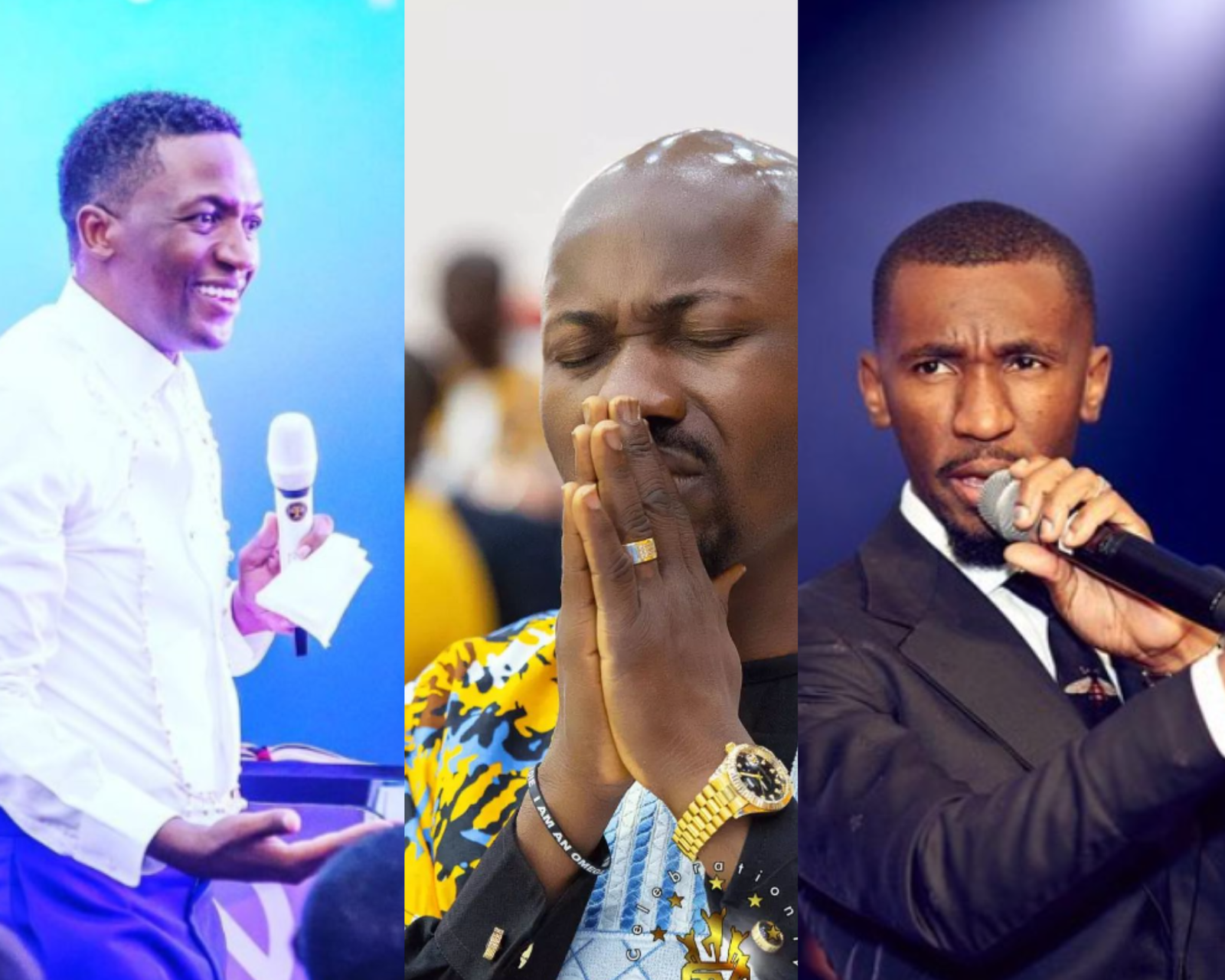A Modern Christian Perspective
The art of engraving indelible marks on the skin, a.k.a tattooing, has become a mainstream subject of interest. There have been many conflicting views on whether Christians should have tattoos. Some preachers strictly label the practice as ungodly, while other ministers of the gospel assert that it is a means of self-expression and, therefore, should not be condemned.
This article highlights some top African prophets who embrace tattoos as art. By showcasing these individuals, the goal is to encourage dialogue and a deeper understanding of the diverse opinions and beliefs within the Afro-Christian community.
In recent years, the traditional Christian perspective on tattoos has shifted. And many Christians have come to view tattoos as a matter of personal choice rather than a sin. A number of factors, including changes in societal attitudes toward tattoos and the increasing acceptance of body art in popular culture, have influenced this shift.
Those who supported the idea of tattoos as a matter of personal choice in the Old Testament laws forbidding it were part of a larger set of laws that applied specifically to the ancient Israelites. Additionally, some Christians argue that the New Testament focus on the internal state of a person’s heart rather than their external appearance, suggesting that the morality of tattoos is not a black-and-white issue.
While the traditional Christian stance on tattoos is more of condemnation. But the modern Christian perspective has become more nuanced, recognizing that the issue is complex and multifaceted. As a result, many Christians now view tattoos as a legitimate form of self-expression and reject the notion that they are inherently sinful.
Here are five African prophets who see it as a way to express one’s devotion rather than a sinful or immoral act.
#1. Prophet Uebert Angel
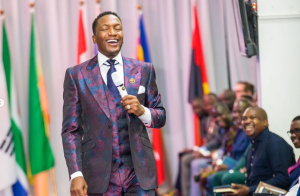
Prophet Uebert Angel is a Zimbabwean-born preacher based in the United Kingdom. He is the founder of the Spirit Embassy Church and is known for his philanthropic work. Prophet Uebert Angel’s unique perspective on tattoos differs from the traditional Christian stance. He believes tattoos are a form of self-expression and sees them as a way for people to tell their life stories through art. He also stated that tattoos do not impact a person’s relationship with God.
Many of Prophet Uebert Angel’s followers have also embraced tattoos, with some even getting tattoos of the Prophet’s face or teachings. In one instance, a young lady got a tattoo of the Prophet’s quote, “Your location is not your destination,” on her arm.
Prophet Uebert’s views on tattoos have sparked controversy within the Christian community. Still, they have also resonated with many of his followers, who see tattoos as personal expression.
#2. Prophet Passion Java
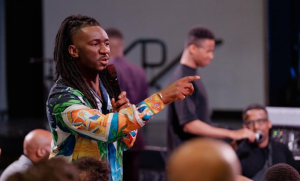
A Zimbabwean preacher, motivational speaker, and philanthropist, Prophet Passion Java founded Passion Java Ministries. He is known for his energetic preaching style, often including singing, dancing, and motivational talks. Although Prophet Java has several tattoos on his arms and chest, including a large one that reads “The Voice” in bold letters. The Prophet’s views on tattoos are unclear, as he has not made any public statements. However, several examples of his followers with tattoos suggest that he may not have any issues with body art.
Some of his followers have shared their tattoo stories on social media, crediting Prophet Passion Java for inspiring them to express themselves through body art. One of his followers, a woman named Tariro, got a tattoo of a lion on her arm, inspired by one of Prophet Passion Java’s sermons on courage and strength.
Another follower, Tendai, got a tattoo of a cross on his chest, which he says represents his faith and commitment to living a life of purpose and meaning.
You may also like: Top 5 Non-Biblical Practices Thriving in Churches Today
#3. Prophet Johnson Suleman
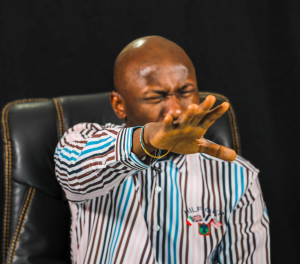
Johnson Suleman is one of Nigeria’s most controversial preachers. He is a televangelist and the founder of Omega Fire Ministries International. He was born on March 24, 1971, in Benin City, Edo State, Nigeria. Suleman is known for his fiery preaching, prophecies, and humanitarian work.
Suleman has not publicly spoken about his views on tattoos. However, in a tweet on March 4, 2019, he wrote, “A Christian should not be condemned for having tattoos or wearing earrings… It’s not a sin.” This statement implies that he may not view tattoos as a sin and, therefore, may not have a problem with his followers getting tattoos.
There are several examples of Suleman’s followers who have tattoos. In a YouTube video posted by the Omega Fire Ministries TV channel, a young woman named Grace shares her testimony of how the ministry transformed her. She reveals a tattoo on her arm that reads “Jesus.” In another video, a man named Promise shares his testimony and shows a tattoo on his arm that reads “Born Again.”
Prophet Johnson Suleman may not be against tattoos; his followers have expressed their faith through body art.
#4. Prophet Shepherd Bushiri
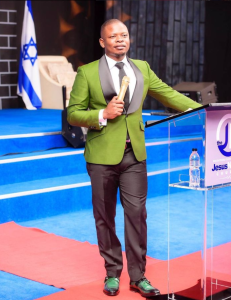
Shepherd Bushiri, also known as Major 1, is a Malawian religious leader and self-proclaimed Prophet who founded the Enlightened Christian Gathering (ECG) church in South Africa. He is known for his controversial teachings and extravagant lifestyle. There is no publicly available information on Shepherd Bushiri’s views on inscribing a tattoo. However, it is worth noting that he emphasizes the importance of personal choice and freedom in some of his teachings. It could be interpreted as a more liberal stance toward body art. As for his followers, there have been reports of some members of the ECG church sporting tattoos, but it is unclear whether this is endorsed or discouraged by the church leadership.
#5. Prophet Emmanuel Makandiwa
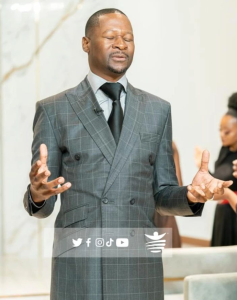
Prophet Emmanuel Makandiwa is a Zimbabwean preacher and United Family International Church (UFIC) founder. He is known for his prophetic teachings, healing services, and philanthropic work through his Emmanuel Makandiwa Foundation.
There is no public statement from Prophet Emmanuel Makandiwa regarding his personal views on tattoos. However, it is worth noting that UFIC has no official stance on tattoos and no reported instances of Makandiwa discouraging or condemning tattoos.
As for examples of followers with tattoos, some members of the UFIC congregation have tattoos. But it is not a widespread trend or celebrated aspect of the church. It is important to note that many African cultures do not traditionally see tattoos as a desirable form of body art. This cultural influence may play a role in the attitudes towards tattoos in the UFIC community.
Recommended: 5 Most Influential Spiritual leaders in Modern Christianity
What does the bible say about tattoos?
The controversy surrounding tattoos in the Christian community arises from the interpretation of various Bible verses, particularly Leviticus 19:28. Which states, “Do not cut your bodies for the dead or put tattoo marks on yourselves. I am the Lord.” Some Christians argue that this verse prohibits all forms of tattooing. In contrast, others believe the prohibition was specific to pagan rituals and does translate to modern-day tattooing. The controversy has led to varying opinions among African Christian communities regarding the acceptance of tattoos. However, in 1 Corinthian 6:19-20, the scripture talked about the body being the temple of the Holy Spirit. At the same time, some people may have misinterpreted this saying that the body is not the temple but the dwelling place of the Holy Spirit and that a tattoo does not defile the body.
Finally, Romans 12:1–2 appeals to us by the mercies of God to present our bodies as a living sacrifice, holy and acceptable to God, which is our spiritual worship. And not to conform to this world but be transformed by the renewal of the mind. And that by testing, you may discern God’s will, what is good and acceptable and perfect.
So, what do you think about these African prophets who embrace tattoos as body art? Do you have any tattoos yourself? Let us know in the comments below!

